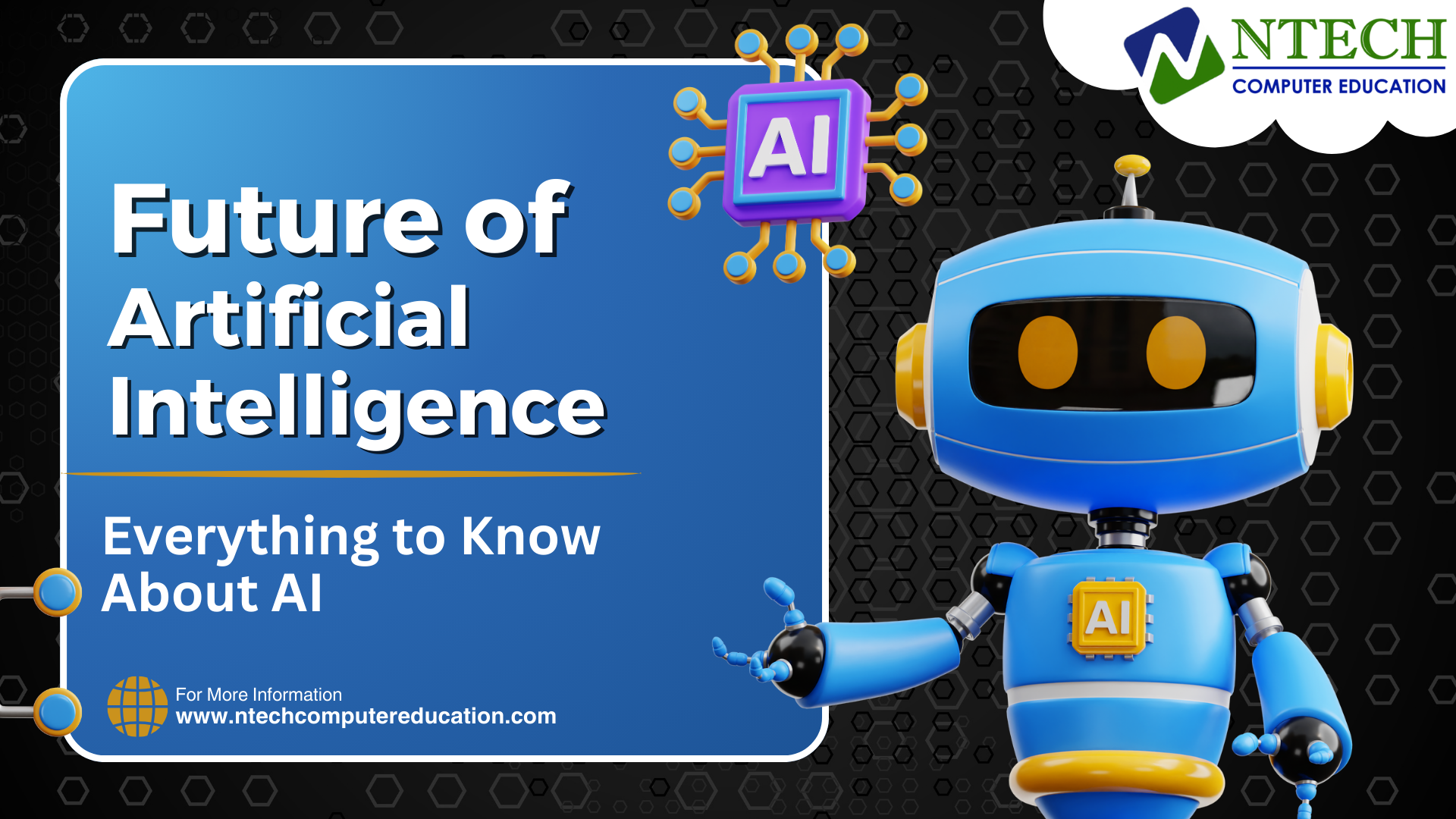In the ever-evolving landscape of technology, Artificial Intelligence (AI) stands as a beacon of innovation, promising to reshape the way we live and work. As we delve into the future, the transformative potential of AI becomes increasingly evident. In this blog post (Future of AI: Everything to Know about Artificial Intelligence), we will explore key aspects of the future of AI, shedding light on its current state, potential developments, and the impact it is poised to have on various industries.
Understanding the Current Landscape
AI has come a long way since its inception, moving from theoretical concepts to practical applications that permeate our daily lives. Machine learning, a subset of AI, has enabled systems to learn and improve without explicit programming, ushering in a new era of efficiency and automation.
Key Trends Shaping the Future
Advanced Machine Learning: As AI continues to evolve, machine learning algorithms are becoming more sophisticated. Deep learning, a subset of machine learning, mimics the human brain’s neural networks, enhancing the system’s ability to process and understand complex data.
AI in Healthcare:
The healthcare industry is poised for a revolution with AI playing a pivotal role. From diagnostic tools to personalized medicine, AI is set to transform patient care, making it more precise and accessible.
Autonomous Vehicles:
The future of transportation is intertwined with AI. Autonomous vehicles, driven by AI algorithms, are on the horizon, promising safer and more efficient travel experiences.
AI and Cybersecurity:
With the growing threat of cyber attacks, AI is becoming a critical component of cybersecurity. Machine learning algorithms can detect and respond to security breaches in real-time, fortifying digital defenses.
Challenges on the Horizon
While the future of AI is promising, challenges loom on the horizon. Ethical considerations, job displacement, and the need for robust regulations are among the key hurdles that must be addressed to ensure responsible AI development and deployment.
The Role of Quantum Computing
Quantum computing represents a potential game-changer for AI. Its ability to process vast amounts of data at unprecedented speeds could propel AI capabilities to new heights, opening the door to solutions for currently unsolvable problems.
The Human-AI Collaboration
Contrary to fears of AI replacing human jobs, the future envisions a collaborative relationship between humans and AI. AI can augment human capabilities, automating routine tasks and freeing up time for more creative and strategic endeavors.
Conclusion
As we stand on the cusp of the future, the trajectory of AI is both exciting and transformative. From revolutionizing industries to addressing complex challenges, AI’s potential knows no bounds. Embracing the evolving landscape of AI will be crucial for individuals, businesses, and societies at large. The future of AI is not just a technological evolution; it is a paradigm shift that will redefine the way we navigate the world. Stay tuned, for the future of AI is unfolding before our eyes, and the possibilities are limitless.

